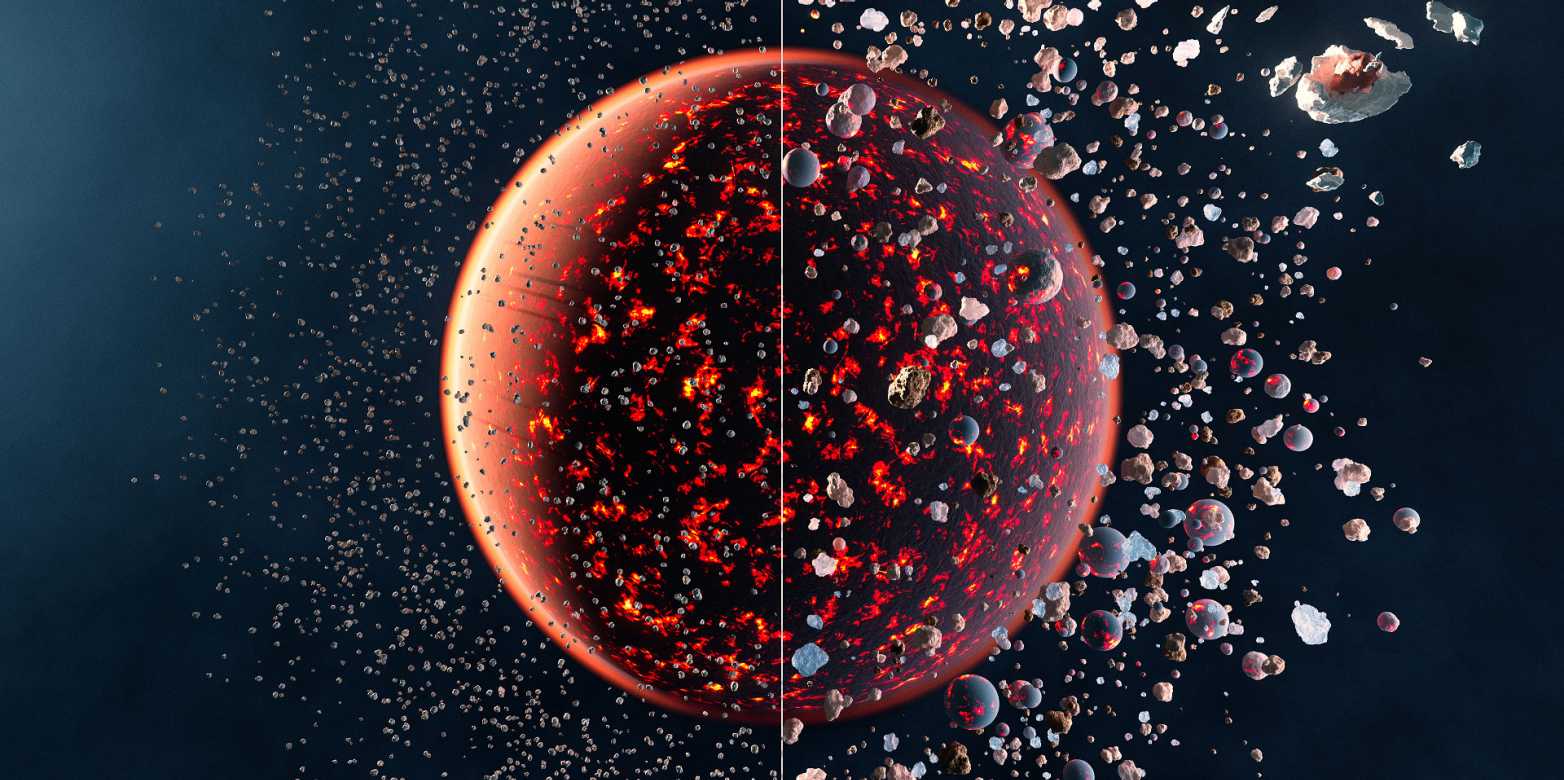Scientists think they’ve solved the Earth’s oldest mystery
Researchers believe they have cracked the strange circumstances behind how the Earth was formed

Scientists have a new theory of how our planet formed.
As well as answering the mystery of how our planet got here, the theory would explain the Earth’s perculiar chemical composition. And it could help tell the story of other planets like ours, too.
“The prevailing theory in astrophysics and cosmochemistry is that the Earth formed from chondritic asteroids. These are relatively small, simple blocks of rock and metal that formed early on in the solar system,” explains Paolo Sossi, professor of experimental planetology at ETH Zurich.
“The problem with this theory is that no mixture of these chondrites can explain the exact composition of the Earth, which is much poorer in light, volatile elements such as hydrogen and helium than we would have expected.”
Researchers have put forward numerous ideas over the years to explain this, suggesting that the collisions of the raw materials that formed the Earth generated a huge amount of heat and vapourised the lighter elements.
However, the Earth’s isotopic composition seems to suggest differently: “The isotopes of a chemical element all have the same number of protons, albeit different numbers of neutrons. Isotopes with fewer neutrons are lighter and should therefore be able to escape more easily”, Professor Sossi said.
“If the theory of vaporisation by heating were correct, we would find fewer of these light isotopes on Earth today than in the original chondrites. But that is precisely what the isotope measurements do not show.”
The researchers started looking for a better answer. It is thought that the planets in the Solar System formed over time, with smaller grains growing into the planetesimals - small bodies of accreted gas and dust - by accumulating material via their gravitational pull.
Unlike chondrites, planetesimals have been heated enough to create a separation between their metallic core and rocky mantle; moreover, planetesimals formed at different areas around the Sun, or at different times, can have strikingly different chemical compositions.
The team ran simulations of thousands of planetesimals colliding to see if they could produce bodies similar to Mercury, Venus, Earth, and Mars. The simulations show that a not only could a mixture of many different planetesimals could have formed the Earth, but that a planet with the Earth’s composition is the most statistically likely outcome.
“Even though we had suspected it, we still found this result very remarkable,” Professor Sossi says.
“We now not only have a mechanism that better explains the formation of the Earth, but we also have a reference to explain the formation of the other rocky planets,” the researcher says.
“The mechanism could be used, for example, to predict how Mercury’s composition differs from that of the other rocky planets. Or how rocky exoplanets of other stars might be composed.”
Join our commenting forum
Join thought-provoking conversations, follow other Independent readers and see their replies
Comments
Bookmark popover
Removed from bookmarks